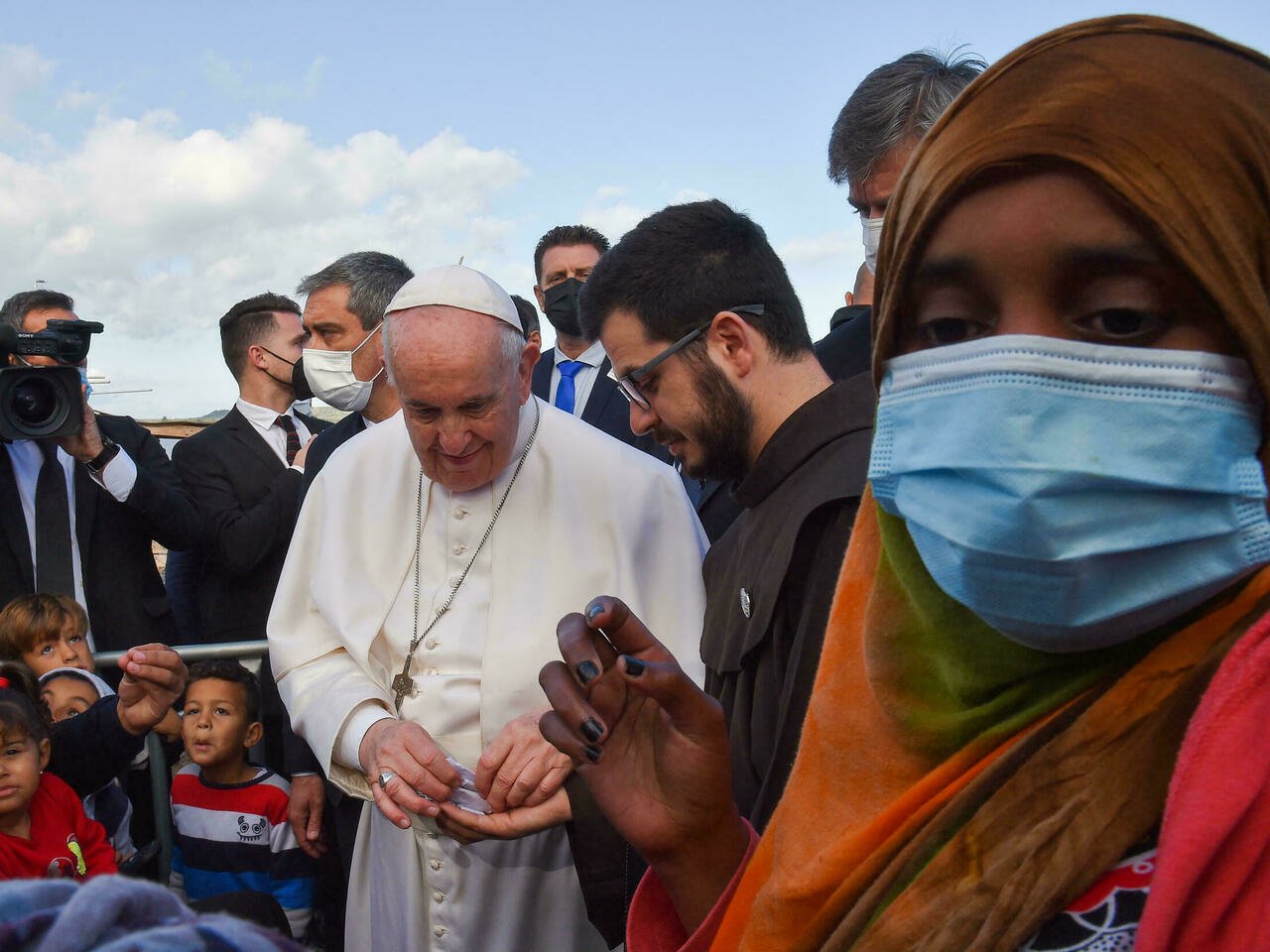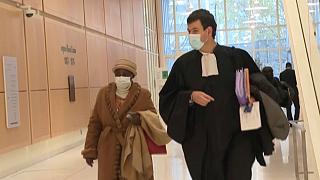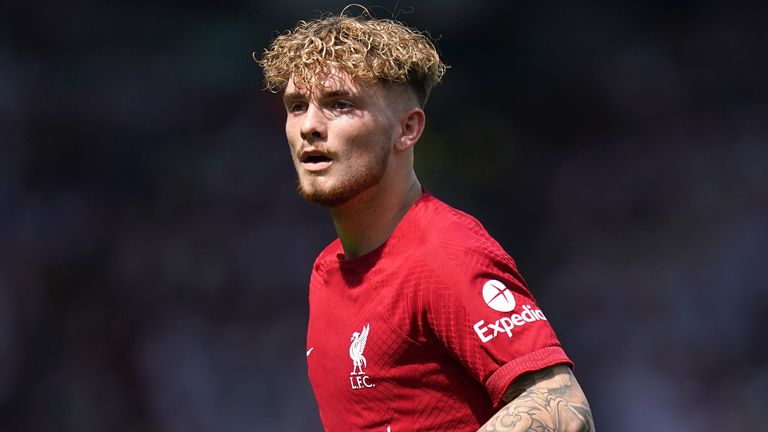Pope Francis on Sunday returned to the island of Lesbos, the migration flashpoint he first visited in 2016
The pope has long championed the cause of migrants and his visit comes a day after he delivered a stinging rebuke to Europe which he said was “torn by nationalist egoism”.
“In Europe there are those who persist in treating the problem as a matter that does not concern them,” the pope said as he spent some two hours at Lesbos’ Mavrovouni camp where nearly 2,200 asylum seekers live.
On the second day of his visit to Greece, he met dozens of child asylum seekers and relatives standing behind metal barriers and stopped to embrace a boy called Mustafa.
People later gathered in a tent to sing songs and psalms to the pontiff.
Pope Francis warned that the Mediterranean “is becoming a grim cemetery without tombstones” and that “after all this time, we see that little in the world has changed with regard to the issue of migration”.
He said the root causes “should be confronted — not the poor people who pay the consequences and are even used for political propaganda”.
The European Union has been locked in a dispute with Belarus over an influx of migrants travelling through the former Soviet state seeking to enter Poland, Lithuania and Latvia in recent months.
Britain and France have traded barbs over the increasing number of migrants making the deadly Channel crossing to reach the UK in the wake of the November 24 mass drowning which claimed 27 lives.
“His visit is a blessing,” said Rosette Leo, a Congolese asylum seeker at the site.
‘Terrible modern Odyssey’
The temporary Mavrovouni tent camp was hurriedly erected after the sprawling camp of Moria, Europe’s largest such site at the time, burned down last year.
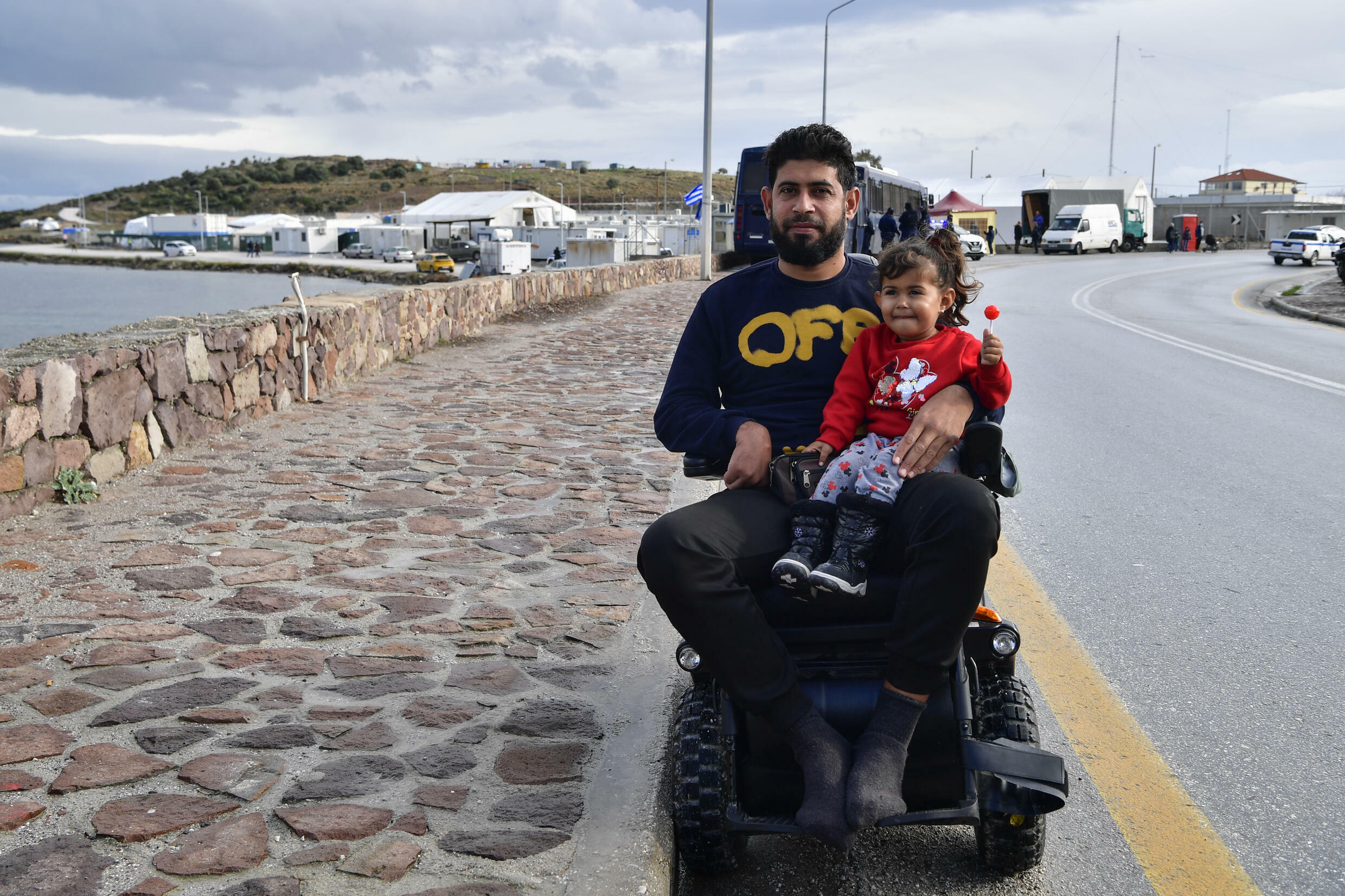
Greek authorities blamed a group of young Afghans for the incident and security was substantially enhanced for the pontiff’s visit.
The pope’s trip to Lesbos was shorter than his last as he will hold a mass for some 2,500 people at the Megaron Athens Concert Hall later Sunday.
In Cyprus, where the pope visited before Greece this week, authorities said that 50 migrants will be relocated to Italy thanks to Francis.
Greek officials have not ruled out the possibility that some migrants from Mavrovouni could accompany him back to Italy.
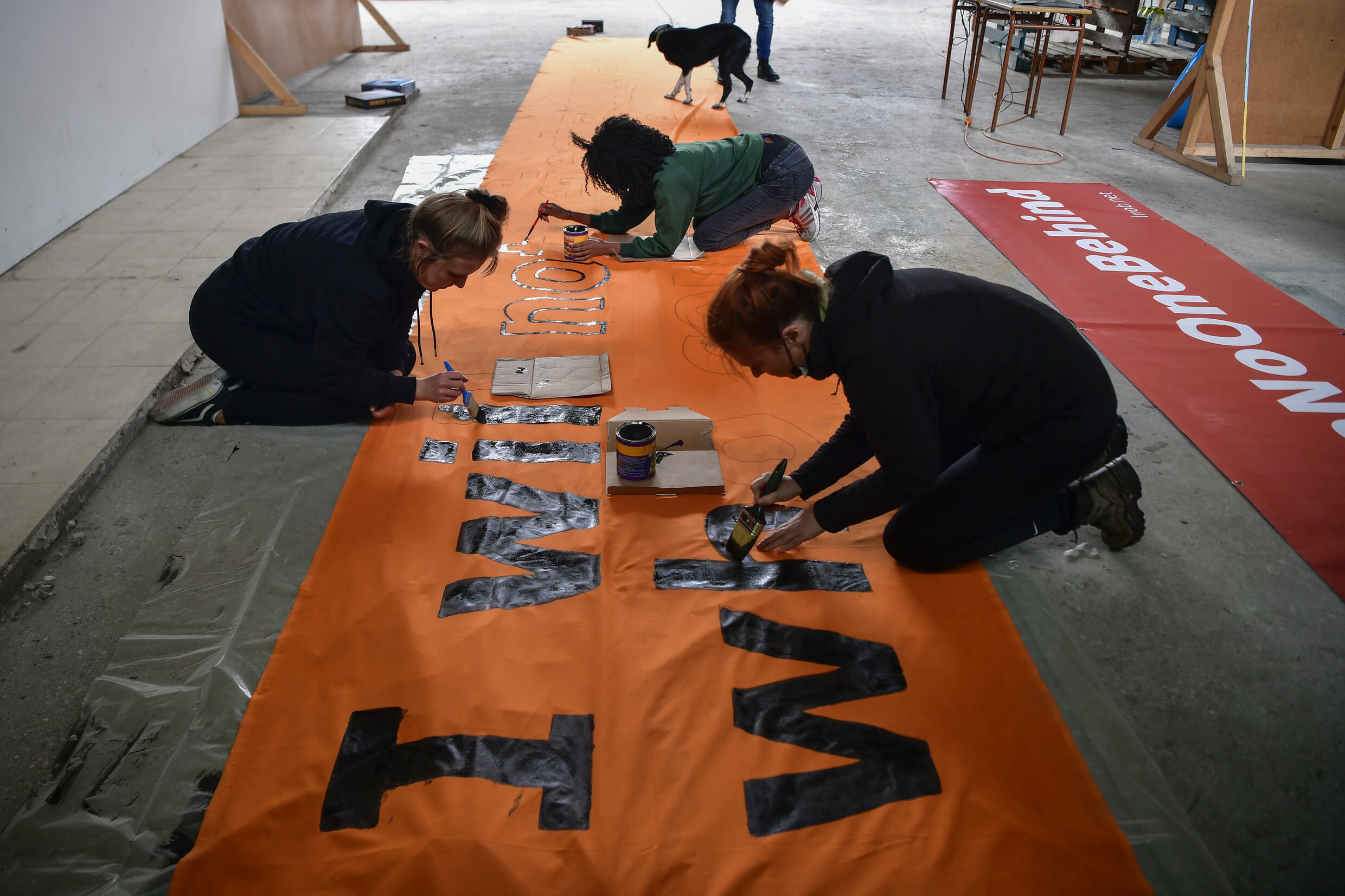
He took 12 Syrian refugees with him during his last visit to Lesbos in 2016.
EU ‘torn by egoism’
At the start of his Athens visit on Saturday, Francis “today, and not only in Europe, we are witnessing a retreat from democracy,” , warning against populism’s “easy answers”.
In 2016, Francis visited Moria with Bartholomew I, the spiritual leader of the world’s Orthodox Christians, and Archbishop Ieronymos II, head of the Church of Greece.
The Mavrovouni camp currently holds 2,193 people and has a capacity of 8,000, a facility official said this week.
Authorities insist asylum procedures and processing times are now faster.
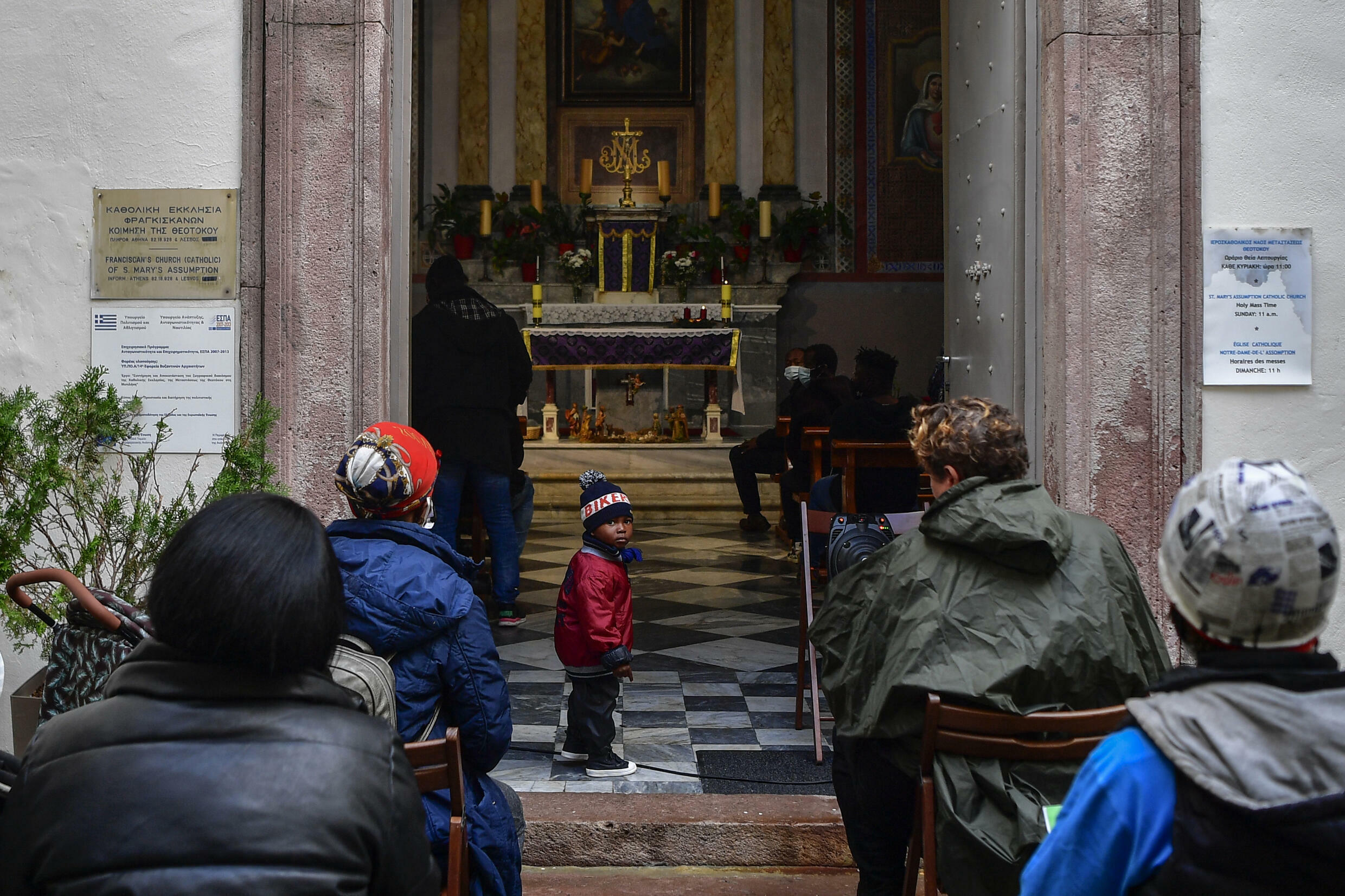
With EU funds, Greece is building a series of “closed” facilities on Greek islands with barbed wire fencing, surveillance cameras, X-ray scanners and magnetic gates that are closed at night.
Three such camps have opened on the islands of Samos, Leros and Kos, with Lesbos and Chios to follow next year.
Once migrants receive asylum they are no longer eligible to remain in the camps with many then unable to find accommodation or work, drawing criticism from NGOS and aid agencies.
The groups have also raised concerns about the new camps, arguing that people’s movements should not be restricted as well as claiming Greek border officers have pushed back migrants.
Greece vehemently denies the claims, insisting its coastguard saves lives at sea.
The pope flew back to Athens after the visit and will return to Rome on Monday.
AFP
